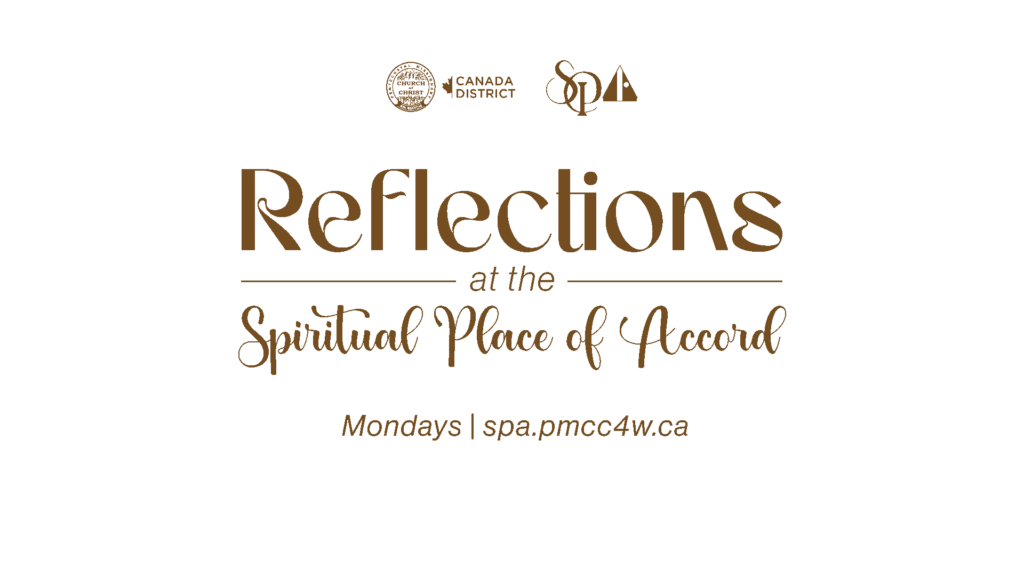by Elder Aries de Vera
Hey Google! What do you think is a good topic to write about for my SPA article?
GOOGLE: Sorry, I didn’t understand that.
In this age of the internet and social media, I am adapting and shaping my work and ministry based on what’s currently relevant. I use these platforms and devices to my advantage and see that they help me in a positive way.
My recent articles were written on my Microsoft Surface Pro 11, powered by a Snapdragon X Plus processor. Mobile computing—especially newer laptops—has begun embracing ARM chips, which are faster (depending on the use case) and significantly more battery-efficient compared to traditional Intel or AMD silicon. Just a month ago, I created a social media content using Ray-Ban Meta glasses and edited it on my Samsung Galaxy S25 Ultra in just 10 minutes. Technological advancements have undeniably made life more convenient—a clear sign of our time, as stated in the Bible.
“But you, Daniel, roll up and seal the words of the scroll until the time of the end. Many will go here and there to increase knowledge.” – Daniel 12:4
I’m always amazed by the modern marvels we get to witness in our time. I love exploring new technologies, particularly phones, tablets, and laptops. In August, Google released its newest Pixel phone lineup. Last week, Samsung unveiled its latest Galaxy tablets. This coming Tuesday, Apple will introduce its new iPhones. And what do all these devices have in common? A feature called AI.
Back in the 90s, as kids, we used to dream about a future run by automation. We imagined a world where everything could be controlled by pressing a button or tapping on a screen. But those things I deemed futuristic are now becoming a thing of the past. Welcome to the era of Artificial Intelligence, or AI. The rise of AI has redefined the norms of our world, bringing that once-distant dream to life. Of course, there are both good and bad aspects to it. But regardless, AI is here to stay. As intelligent as it is, we must be wiser and more careful in how we use it.
There’s now an AI’d way to do everything. It sounds interesting, but there’s a great danger associated with it. Synthetic media that we view online or on our devices is created using artificial intelligence and deep learning techniques. It looks real to the extent that it alters not only the visual and sound of things or people but also the understanding and thoughts of those consuming it. That’s where disinformation takes flight.
Want more information about a certain product? Point your phone camera at the object, and it will give you details about it. Your photo is blurry, or you want to look younger? There’s generative editing that can make your picture look good. Need to make an attractive resume for a job application, or write a research paper or project? ChatGPT will take care of everything. As a writer, there’s this temptation to aid my craft with AI. Yes, it’s convenient, but it takes away from or lessens my attachment to my piece. There’s joy and pleasure in writing. And this is one of the reasons why I enjoy doing it. My thoughts can’t be AI’d. The boom of AI makes us feel emotionless and dependent on quick processes in life. But I believe that not all things in this world need to be instant. Not all things need to be AI’d!
I started writing this article on the eve of TO31—PMCC 4th Watch Toronto’s 31st Church Anniversary and Thanksgiving Crusade. As I saw my brothers and sisters busy setting up and preparing for our event the following day, I thought to myself that pure intentions like this can’t be faked. These are real people working together to glorify God and to usher others into a praise-worthy experience. We left the venue an hour past 1 AM—tired, exhausted, and sleepy. But deep inside, our hearts were filled with joy and anticipation for what would transpire in just a few hours. It’s TO31!
I am reminded of what Apostle Paul said in Ephesians 5:15-17: “Be very careful, then, how you live—not as unwise but as wise, making the most of every opportunity, because the days are evil. Therefore do not be foolish, but understand what the Lord’s will is.” It may seem a little out of context to what I’m trying to point out, but nevertheless, it’s a good guide for us. Our time poses a danger of leading us to change the course of how we serve God. Holiness and service, as taught to us by the Goodman of the House, can’t be short-cutted or achieved instantly. We must work on our faith with diligence and devotion. We must serve God wholeheartedly and passionately. Afterall, service to God is a personal commitment. Our relationship with Him is born out of his love for us. Divine, pure, and unconditional. No amount of human wealth or knowledge can alter that.
Holiness and service, as taught to us by the Goodman of the House, can’t be short-cutted or achieved instantly. We must work on our faith with diligence and devotion. We must serve God wholeheartedly and passionately. Afterall, service to God is a personal commitment. Our relationship with Him is born out of his love for us. Divine, pure, and unconditional. No amount of human wealth or knowledge can alter that.
A day after TO31, I still have a “hangover” from all that He has done on that day. I promised myself and my editors that I would write something about the anniversary. The things that I witnessed yesterday are proof that not all things can be AI’d. We can’t AI the generosity of God’s people who have received salvation and experienced great things from Him. We can’t AI the testimonies of people who have seen the amazing things that He has shown them. We can’t AI the powerful message of the Gospel that brings salvation to many (Romans 1:16). We can’t AI the decisions of faith made by our guests. We can’t AI the sacrifices and the hearts of those who are willing to be used for the glory of God.
As I look back on TO31, there’s one thing I can definitely say: We can’t be AI’d!
Reflection: In a world dominated by AI, what parts of your life do you want to keep genuine and unfiltered? How can you ensure that your relationship with God remains personal despite the rise of AI?


Leave a Reply